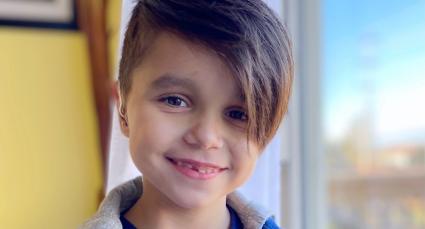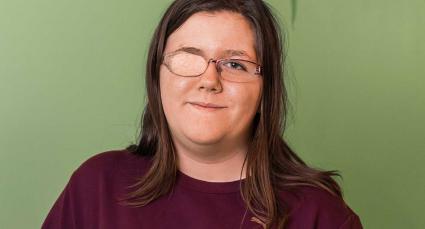Felicia was born weighing just five pounds and 10 ounces. Although some babies born small are healthy, this, unfortunately, wasn’t the case for Felicia.
While she had a big appetite, Felicia wasn’t gaining weight, and her grandmother, Juanita, noticed her skin tasted salty after kissing her.
At six months old, Felicia developed a persistent cold, runny nose, and cough. And eventually, she began to vomit mucus consistently, her breathing became shallow, and her belly was bloated.
Her parents, Leslie and Dean, took her to a local pediatrician, who referred her to the IWK for a sweat test. This test measures the amount of chloride in the sweat and can help diagnose cystic fibrosis (CF).
CF is an inherited life-threatening disease that causes severe damage to the lungs, digestive system and other organs in the body. There is no cure for CF, but treatments and medications can ease symptoms and help improve the quality of life for those living with the disease.
Unfortunately, Felicia’s sweat test results confirmed what her family was dreading — their baby daughter had CF. Although Leslie and Dean felt some relief knowing why Felicia had been sick for so long, the news was still difficult to hear.
After her diagnosis, Felicia was immediately admitted to the IWK and put in the care of the Chest and Respiratory Clinics. They measured her height and weight and ran various tests, such as X-rays.
The X-rays showed that Felicia had mucus in her airways and pseudomonas (a type of bacteria) growing in her lungs. Pseudomonas is a major cause of lung infections in people with CF.
Felicia’s care team inserted a PICC line (a long, thin tube inserted through a vein in the arm) to administer her antibiotics to help fight off the pseudomonas and an infection. While Felicia was receiving care, Leslie and Dean were learning everything they could about CF — from diet to physical therapy and lung therapies to how to administer enzymes. “It was like a boot camp for CF,” says Leslie.
Thankfully, after spending two weeks at the IWK, Felicia could return home.
Felicia, now 11 years old, must visit the IWK’s chest and respiratory clinics every three months. At every visit, her care team checks her height, weight, and lung capacity. She also meets with a physiotherapist, nutritionist and psychologist.
At home, Felicia does Positive Expiratory Pressure therapy to get air into the lungs and Chest Physical Therapy to clear mucus from her lungs every morning and night. She also must take enzymes and over 50 pills a day to be able to eat and multivitamins to ensure she’s getting the nutrients she needs.
In October 2022, Felicia began taking a new medication that has improved her lung function, which helps Felicia do the things she loves most, such as dancing, swimming, and performing with her local theatre.
When asked what the IWK means to Leslie, she says that the IWK is their lifeline. “The experience of having your child sick is horrifying, but having people that are family and that care about your child as much as you do is a different experience,” shares Leslie. “I don’t know how they share all that love with all those families.”



